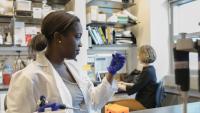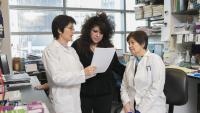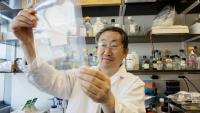Research

Substantial clinical, educational, and basic science research efforts within the Department of Dermatology are linked to cancer prevention, detection, and to improving treatment options. Much of the work that has already been accomplished within the department anticipates the kind of exciting breakthroughs that will be expected from dermatology researchers in the future. Because of the unique resources that the Department of Dermatology has brought together, the department is positioned to be a major player in building the base of knowledge about disease pathogenesis that could lead to novel approaches to the diagnosis, treatment, and prevention of patients with both skin diseases and systemic disorders in the 21st century.

